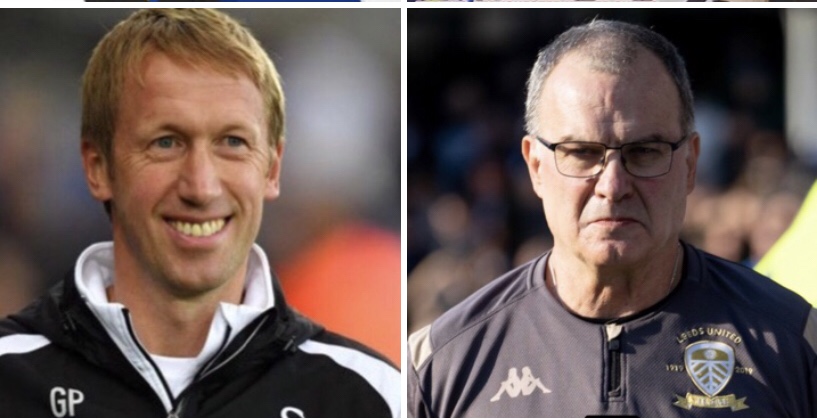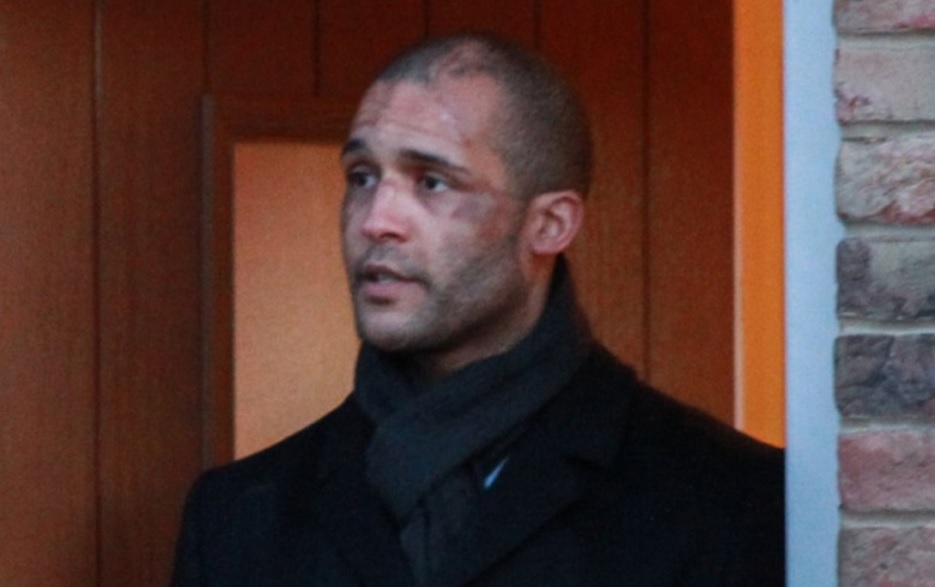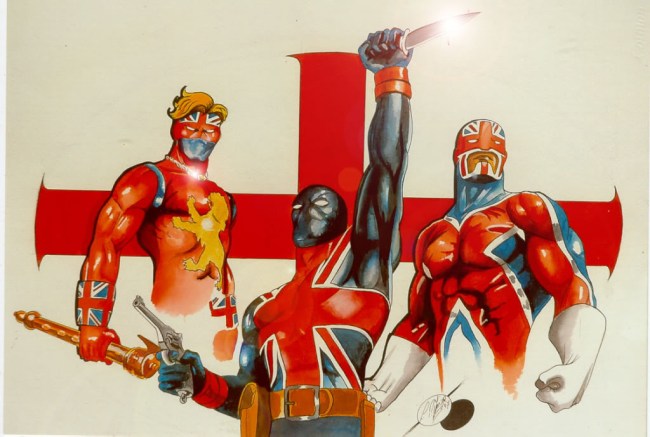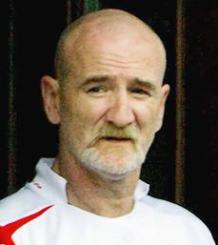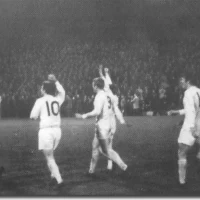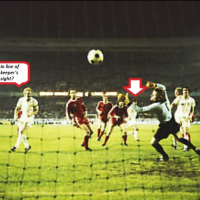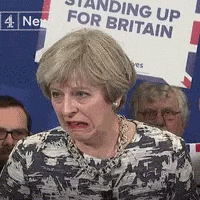
One home, one away and one keeper’s, please. All XXXL
The new Leeds United home and away replica shirts are now available in the club shops, at an only mildly extortionate price, resplendent in traditional white and yellow respectively, innocent of any tacky sponsors logo and – apparently – quite the most desirable things since Felicity Kendal’s late 70s vintage derrière. I’ve had my say on the home shirt – I wasn’t keen, but I was clearly in the minority as far as that went. The away shirt, though, is undeniably sexy.
The only real peeps of protest have come from those chaps of “more generous proportions”, who are finding difficulties with the “snugness” of the design. It’s proving difficult, it seems, for the more portly gent to squeeze his avoirdupois into his shiny new shirt – unless he’s invested in a couple or three additional X’s on top of the standard XL. As the owner of a somewhat rounded physique myself, it’s got me thinking and, slowly but surely, a rant has developed.
It’s a rant that has its roots in a news item from a couple of years back, when BBC Radio Five Live were in crusading mode, their plan of campaign as usual heavily reliant upon taking a lazy sound-bite and stimulating a heated debate around it. On this occasion, the sound-bite was a distinctly unprofessorial (not to say yobbish) statement by one Professor Craig Currie of Cardiff University, who had given it as his august opinion that we in the UK are “a nation of lazy porkers”. Now, the good professor may have expressed himself like a lout – but, now as then, he does rather have a point.
I must reiterate here that I am something of a porker myself though not, I hope, a lazy one – but it should be clear from the outset that I’m not here to have a go at hapless fellow fatties. I’m all too well aware that we chubsters have more than enough to put up with in terms of slings and arrows and brickbats from insensitive skinny types, bad cess to them. I myself suffer from Type II Diabetes, a condition occurring typically with old age but also probable in earlier years where weight is a factor influencing health. And yet as a younger man, I was extremely fit, active and sporty – so the question arises: what other factors are at play? Why are those Leeds United shirts so tight?
I’ve given this a lot of thought, and I believe that, as a nation, we have failed to address this public health issue in a number of important respects. In a nutshell, I blame the parents – but also educational institutions for their control-freak attitude to school dinners, and successive governments who have taken an alarmingly short-term and complacent approach to investment in measures to preserve the fitness and health of the population.
Let’s look at parents first. How many times have you heard of a 1960’s mum or dad, themselves brought up in an atmosphere of post-war austerity, telling their already full-up offspring “Clean your plate now – I won’t have you wasting good wholesome food. That would feed a family for two weeks in Biafra.” That’s what I used to hear as a kid, and, although I always had to bite back a snapped “Well, send it to Biafra, then”, it was considered sound child psychology. I even relayed a watered-down version of it to my own child. But this one phrase, or variants thereof, can be held at least partly responsible for a pattern being set in childhood whereby many people feel actual guilt if they’re in danger of leaving food uneaten on a plate.
At my primary school in the sixties, those of more delicate appetites were always in danger of being sent to “stand at the wall” in the big dining room when the dreaded school dinners were being served. Leaving food on your plate was a disciplinary issue, and offenders were subjected to this diluted form of public humiliation. Looking back, it seems barbaric – a kind of child abuse. And all the time, the insidious process of habit-formation was going on, with young bodies and developing digestive systems being routinely overloaded as those plates got laboriously, reluctantly cleared. It was a mental process as well as a physical one – the feeling of guilt at any waste was ingrained early. Even now, in restaurants, we of a certain age make the old joke: finish up now, or you’ll get stood at the wall. It’s the product of misguided brainwashing 50 years ago, by parents, by teachers, by the formidable army of “dinner ladies”.
So the errant notions of childhood nutrition, arising out of an historical and hysterical “post-rationing” culture that spawned the baby-boomers, may be one factor that is now reaping an unwelcome harvest in the proliferation of Type II Diabetes in younger age-groups such as the 40-somethings. What else might be at play? Hand-in-hand with the issue of nutrition goes the equally thorny one of exercise. When I was a child, most recreation was out of doors, and nearly every patch of public land had its games of football going on whenever the players weren’t required in the classroom or at home. It was jumpers for goalposts over the length and breadth of the country, and kids ran and ran after a ball, or whatever other sporting object and, by and large, they were lean and fit as whippets as a result.
All that started to change with the advent of videos and computer games and, latterly, the Internet. Each advance of technology has had the effect of dragging the youngsters indoors to become fat and pasty as they pursue their virtual preoccupations. It was a clear, unmistakeable signal for the authorities to do something, something urgent and effective, to promote exercise and the outdoors as essential to health and development. Investment was necessary in exercise facilities, and the crucial importance of this had to become a much more up-front feature of the national curriculum. This much, surely, was self-evident.
So what have our various political persuasions of government done? Failed, utterly, that’s what. Cut back on investment. Sold off playing fields. Allowed the private sector to hire out exercise facilities at a premium price to make a fat profit and cause a problem of fat people who can’t afford to get fit. This failure to invest is a classic illustration of the wisdom of the old saw “A stitch in time saves nine”.
My own spiral downwards from fitness began with a cruciate knee ligament injury – and by the time I’d recovered, I was saving up to get married. I couldn’t afford gym fees etc – so it was too expensive to get fit again. My current health problems can be traced back to that time, and I’m sure the story is similar for many thousands of others. If misfortune strikes, part of the healing process has to be an active and healthy lifestyle, with exercise restoring the body as far as possible from an event like my knee injury. If that’s made too difficult due to financial circumstances, you pay a price in later life and declining health.
Now, the government is wailing and gnashing its teeth at the cost to the NHS of this Diabetes explosion, and other health issues that seem set fair to bankrupt our health service. It’s a bit like a householder bemoaning a £350 plumbers’ bill which has come about because they failed to invest £2.95 in lagging the pipes. Just consider the massive folly of what has happened. Selling off the playing fields, only to reap the harvest of a nation of lazy porkers. Flogging exercise facilities and then pointing the finger at the victims of obesity-related illness is comparable to raffling off the lifeboats on the Titanic, and then blaming the iceberg for the death toll.
If we’re to reverse this helter-skelter decline in the nation’s health, we need to stop whinging and shouting “Why, oh why” from the rooftops – and actually do something. Austerity only compounds the problem; investment, investment, investment is the way forward. If it’s possible to spend a pound on exercise and thereby save a fiver later on in healthcare costs – and it demonstrably is – then that is the road we must go down, and on a macro scale.
It may be that we’d only be shutting the stable door after the lazy porkers have bolted – but we have to act now. Exercise facilities must be made available, they must be made attractive and they must be made cheap or free. Public awareness must be raised. Full-time posts must be established for professionals who will then have the responsibility of changing lifestyles and encouraging the nation to get off its backside and do something. That will create jobs, it will have a positive effect on the health of many who simply can’t afford to take advantage of what’s currently on offer – and that, in turn, would have an incalculable effect on the mental health of the population, which right now and for some time past has been crying out for a good healthy kick of endorphins; the feel-good factor.
The cost of all this? Vast. Really, humongously enormous. But the benefits down the line, the savings to be made by the nipping in the bud of all these dire health issues, would be immeasurably greater still. That’s the whole point of investment – you grit your teeth and pay up, hoping for and trusting in a positive return later. The return on the billions spent now, though, should be many more billions, possibly trillions saved in the future. This is an investment we can’t afford not to make.
Just as we now look back at the sixties and remember the influence of our parents, products of late-forties austerity, so in fifty years time our descendants might look back on the current austerity-obsession, shake their heads sadly, and wonder what might have been if we’d only shown the foresight to invest in the future, and to educate our population about the wisdom of staying as fit as possible for as long as possible. At the moment, with our short-sighted insistence on short-term savings we’re storing up trouble in the shape of a vast medical bill which will come due when our next generation grows up flabby and unhealthy, and starts keeling over in rows from the effects of cardiac disease, diabetes, strokes, and other fat-related nasties.
We simply have to pay a few bob to lag those pipes now, if we’re to have any real hope of avoiding that gargantuan plumbing bill in the future. Take it from a deeply concerned porker – a stitch in time really does save nine.
